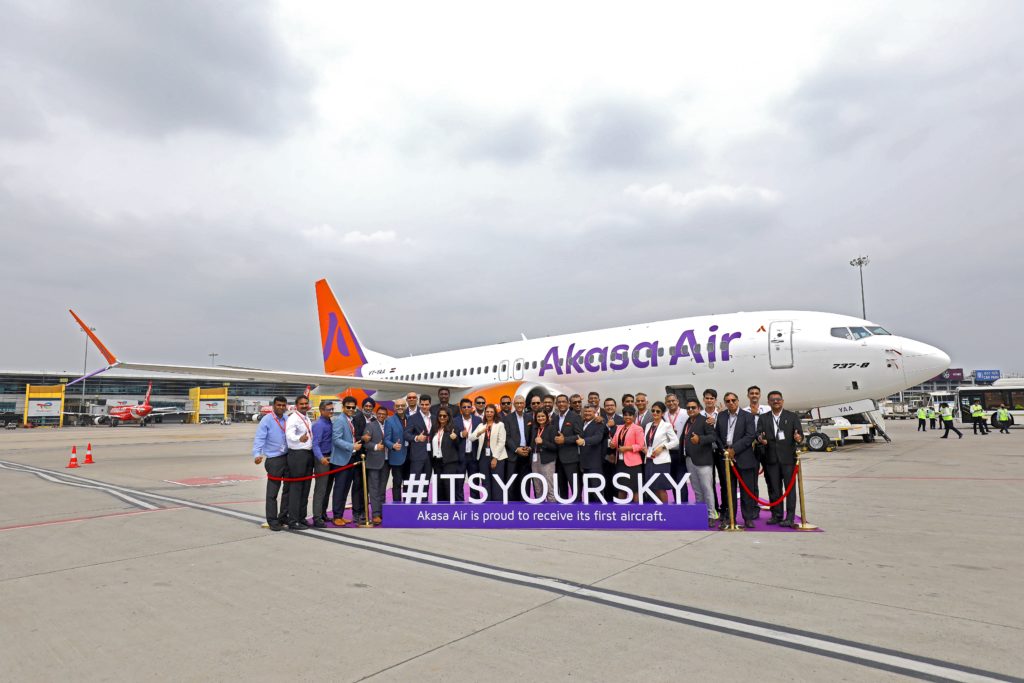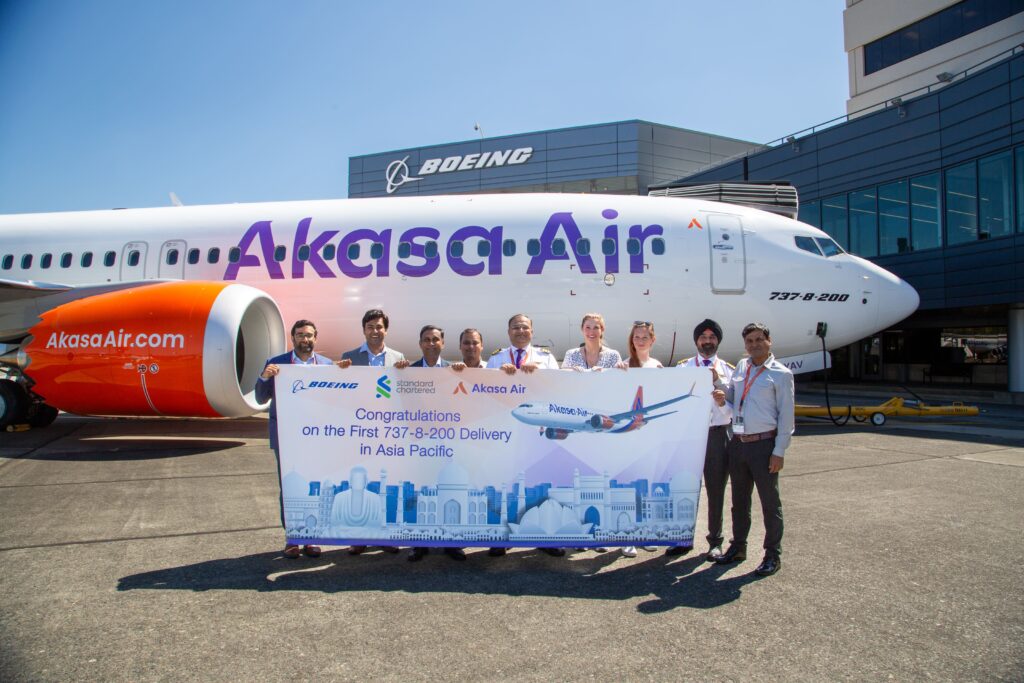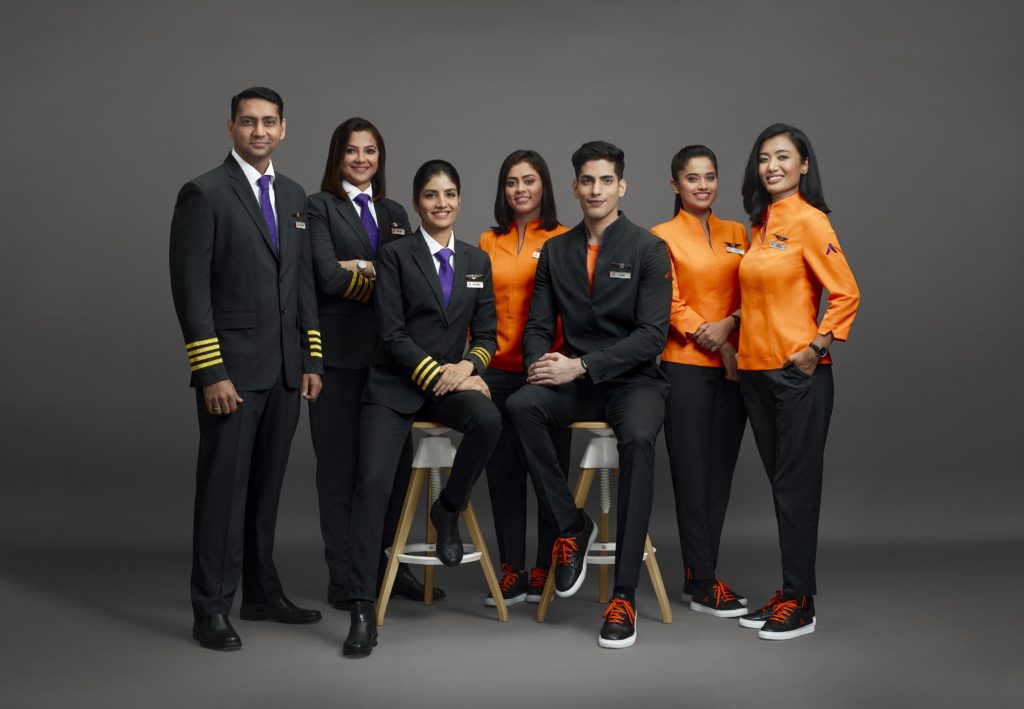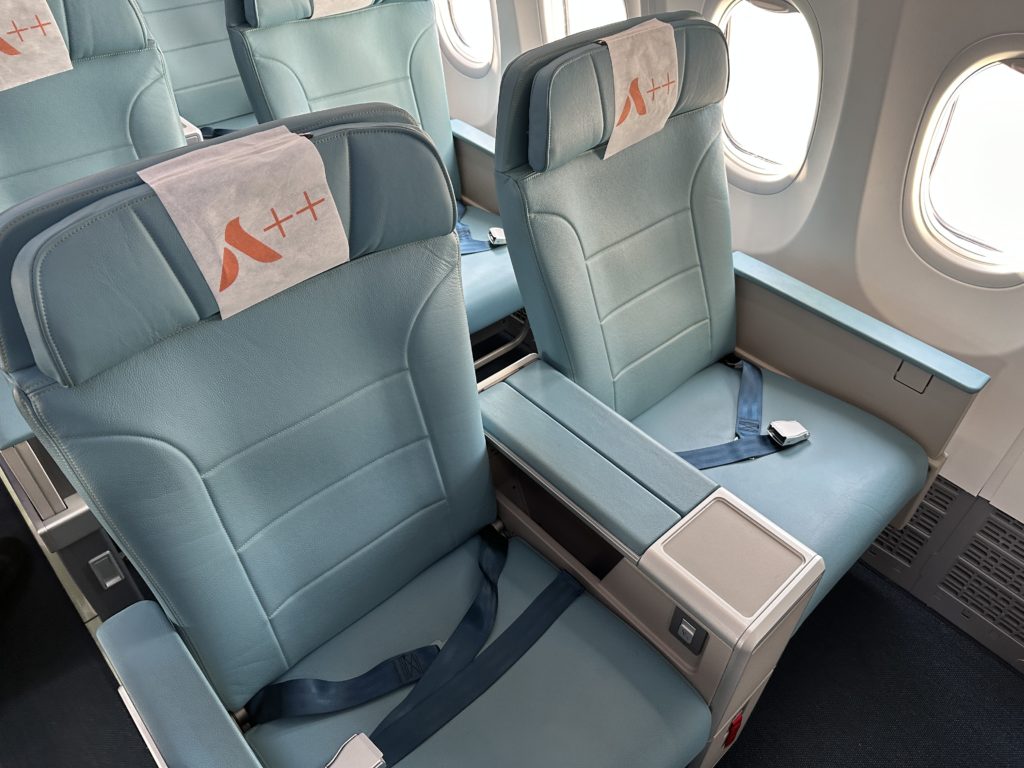Last year, Akasa Air launched operations on August 7, with their first flight operating between Mumbai and Ahmedabad with their first aircraft. Since then, Akasa Air has already served 4.3 million passengers and crossed the milestone of operating over 900 weekly flights with a published network of 35 unique routes across 16 destinations. It has also carried over 25,000 tonnes of cargo across its network during this time.

The First Year of Akasa.
With an initial fleet induction plan of adding one brand new aircraft every 15 days, Akasa Air has created the record of becoming one of the fastest-growing airlines in the history of aviation by achieving a fleet size of 20 new aircraft within 12 months of commercial operations.

Further, the delivery of its 20th aircraft on August 1, 2023, makes Akasa Air the first airline in Asia to add the 737-8-200 variant of the Boeing 737 MAX aircraft to its rapidly expanding fleet. Akasa Air’s order book comprises 76 jets, including 23 737-8s and 53 737-8-200 airplanes. In addition, Akasa states that it remains fully committed to placing a three-digit aircraft order by the end of 2023.
In a short span of a year, Akasa Air has grown its market share to 4.9%, having registered a passenger load factor of over 84% since the start of operations, with a steadily increasing record of close to 90% in the current financial year.
With 20 aircraft on board, Akasa can now fly into international skies. Akasa is preparing to commence international operations by December 2023.
Industry Firsts at Akasa
Akasa has led the charge on exciting things, such as in-flight buy-on-board meals with Café Akasa and its pet-friendly carriage policy – Pets on Akasa. Akasa also became the first Indian airline to have introduced custom trousers, jackets, and comfortable sneakers for its airline in-flight crew. The uniform, per Akasa, was inspired by the company’s core beliefs of employee centricity. The uniform fit focuses on providing flexibility with stretch material to ensure the comfort of employees. Given the long hours spent standing, all frontline employees at the airline sport light sneakers that contain extra cushioning from heel to toe to ensure better support.

The airline has also gone ahead and picked up aircraft which were initially assembled for Jet Airways and put them in service without changing the Layout and the seats. Consequently, there are aircraft out there with Jet Airways’ business class seats outfitted, which Akasa sells as the A++ cabin (wider seats but no meals).

Akasa’s Sustainability Focus
Akasa Air is currently among the greenest airlines in the world, with one of the youngest fleets in aviation. It has made a steadfast commitment towards sustainability.
The airline has invested in making environmentally progressive choices – be it the fuel-efficient 737 MAX airplane that lower environmental impact, recycled materials used in crew uniforms and shoes, as well as eco-friendly packaging in the airline’s in-flight meal service. Not least, the airline took a unique step towards water conservation with its decision to move away from the ceremonial water canon salutes at flight and route inaugurations, which has resulted in saving approximately 3,00,000 litres of water to date.
On this occasion, Vinay Dube, Founder and CEO of Akasa Air, said,
We feel extremely fulfilled to have successfully executed our ambitious and unprecedented scale-up over the last 12 months. As we have grown and delivered to our plans, Akasa Air has become the preferred carrier for an increasing number of travellers across the country. The Akasa story is a testament of India’s ongoing economic transformation and that of the country’s rapidly progressing civil aviation landscape. We are even more proud of the manner in which we have grown. Our disciplined approach and value-based culture has helped us become one of the most reliable, employee-centric, customer-obsessed and sustainable companies in the country, with an unflinching commitment to safety that has underpinned all our operations to date. Our first year has given us a strong operating and financial platform to execute on our continued growth ambitions.
The consensus around Akasa has been that it has been a breath of fresh air in a market where most airlines have been focussing on prepackaged food and have made their own service differentiation. The airline has been building much of its network out of Bengaluru because it has the most parking slots. Akasa made changes to its network to encash upon the exit of Go First from the market and has started mounting more flights, for instance, on Mumbai – Delhi and vice versa. It remains to be seen when Akasa will go deeper into India, as it said before it launched.
Also, while my first experience with Akasa was on launch day, the second time around, I flew with them on the A++ cabin, and I was a bit disappointed to know that everyone else apart from me had not paid the money to be seated up front.
Bottomline
Akasa is all set for the next chapter in its innings, planning to fly internationally by the end of 2023. At the same time, the airline will take a measured approach to fleet growth and will only add a minimal number of aircraft to the fleet in the coming months. After a blazing first year, the airline will use the time to consolidate before it goes for the next leg of its expansion. Besides, the airline plans to order more aircraft this year.
What do you think of the first year of Akasa, and how do you see the second year play out?
Liked our articles and our efforts? Please pay an amount you are comfortable with; an amount you believe is the fair price for the content you have consumed. Please enter an amount in the box below and click on the button to pay; you can use Netbanking, Debit/Credit Cards, UPI, QR codes, or any Wallet to pay. Every contribution helps cover the cost of the content generated for your benefit.
(Important: to receive confirmation and details of your transaction, please enter a valid email address in the pop-up form that will appear after you click the ‘Pay Now’ button. For international transactions, use Paypal to process the transaction.)
We are not putting our articles behind any paywall where you are asked to pay before you read an article. We are asking you to pay after you have read the article if you are satisfied with the quality and our efforts.


So interesting, thanks for sharing! On a related note, India does need another full service airline to create enough competition, especially considering the snobbish Vistara.